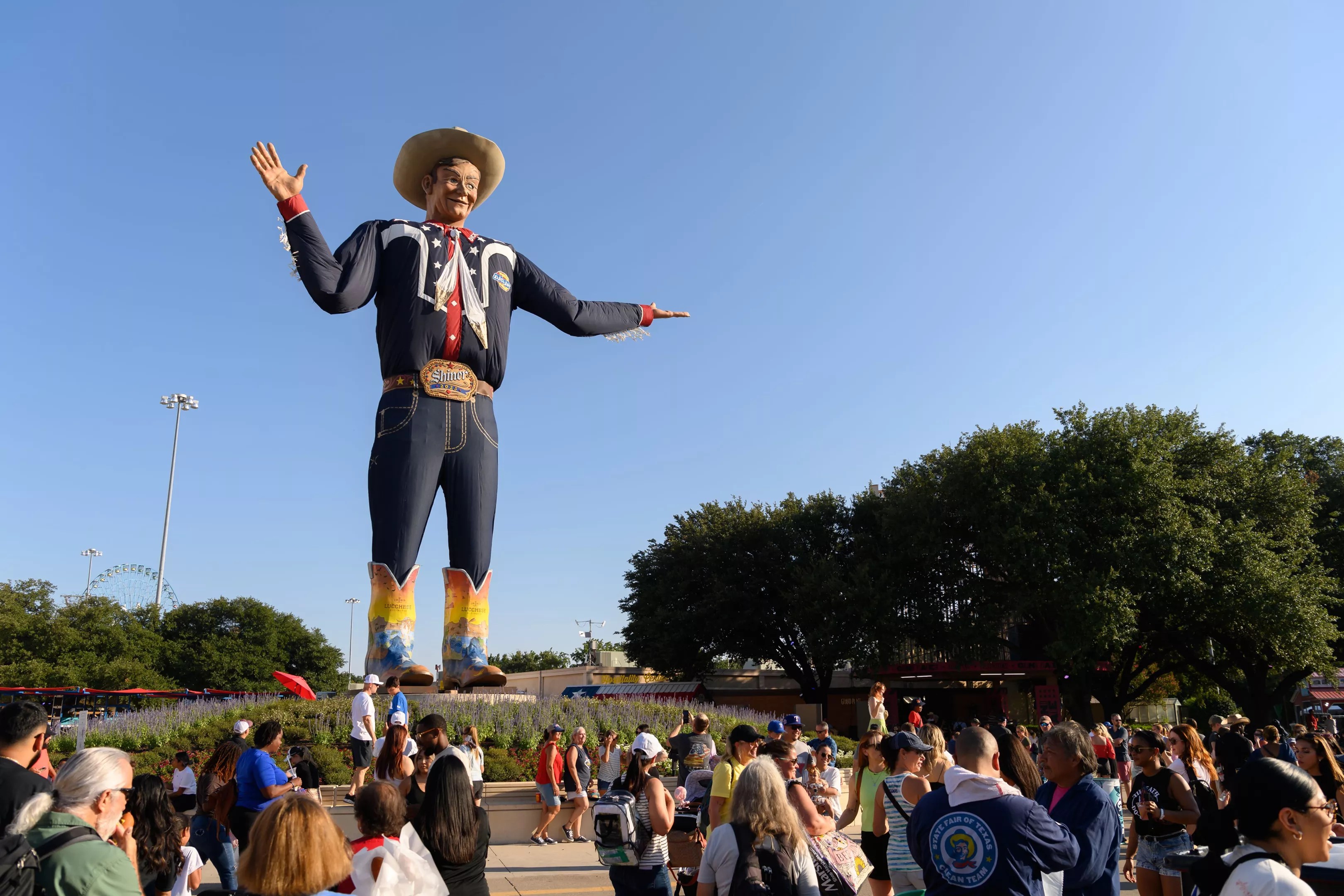
Kevin Brown

Audio By Carbonatix
Over the 24 days that the Texas State Fair ran this year, the U.S. government shut down, Israel and Hamas entered a tentative peace agreement after two years of war, “No Kings” protests took place across the country, and the Texas National Guard was deployed to Chicago to address growing unrest outside of immigration facilities.
So, we understand if Big Tex was the last thing on your mind between Sept. 26 and Oct. 19. That seemed to be the case for many, as influencers took to social media with clips of the fair to repeatedly ask the question: Where is everyone?
Attendance at the fair dropped to its lowest number in eight years. 2,020,064 people visited the fair this year, 15% fewer than attended last year. Officials have pointed to a litany of reasons for the dip in attendance, everything from warm weather to the aforementioned political climate.
“Broader economic pressures are weighing on many families. While we still welcomed more than 2.02 million fairgoers, we know that many families are feeling the pinch of rising costs, and when budgets tighten, big outings are often one of the first things to be reconsidered,” said Karissa Condoianis, senior vice president of communications at the fair. “We also recognize that the overall perception of pricing for a State Fair visit may influence some guests’ decisions.”
While officials added that the State Fair employs a variety of discounts to make the event accessible, tariff uncertainty and inflation hit hard this year, and it was taken out on the customer’s purse. James Talarico, a Democrat campaigning in the 2026 Senate election, was mocked a bit for a recent campaign video he released, in which he espouses State Fair prices as proof that “tariffs are ruining everything” while wearing a Texas flag button-down.
When asked about the video, Condoianis said the fair was “unable to speak to details on how tariffs may have impacted costs.” Throughout the fair, vendors told the Observer that everything from chicken to chocolate skyrocketed in price between last year’s fair and this year’s, leaving them with “no other option” but to raise prices.
“I feel sorry for a family of four that comes out here. No telling what that costs. I mean, just to park, get in the gate, get a soda water or bottle of water, or things like that. It’s prohibitive,” said Glen Kusak, a vendor at the fair whose turkey legs went from $22 to $24 each. That increase still didn’t keep up with the product’s rising cost.
If tariffs made things bad, the government shutdown, which has now lasted a full state fair-length with no end in sight, made things worse. The shutdown began on Oct. 1, just five days into the fair’s reign, which officials believe “affected both sentiment and spending power for many Texans.”
Addressing reporters earlier this month, Congressman Marc Veasey warned that it was not a stretch to believe a shutdown would impact something as seemingly unrelated as state fair attendance. The shutdown resulted in 133,000 North Texans not receiving a paycheck during peak season, he said. That’ll show up somewhere.
“A lot of [federal employees] go to places like the State Fair when they have that discretionary income, and that’s not there now. That impacts people who don’t work for the federal government … don’t think it’s not going to have an impact on our local economy because it absolutely is,” Veasey said.
Ted Benavides, former Dallas City Manager, told WFAA that he believes the city should look deeper into the underlying reasons for the State Fair’s attendance dip. A 400,000-person attendance drop equates to millions of lost dollars; that crowd would bring in $8 million for the most basic entry ticket alone.
Concerns about immigration enforcement likely also kept Latino fairgoers away, said Condoianis. That demographic typically makes up nearly 36% of all fair attendees. A rumor that ICE agents would be patrolling the fairgrounds blew up on social media early into the event’s opening, and while the state fair emphasized that there is not a partnership between the event and federal immigration agents, the rumor had a “noticeable ripple effect.”
“There’s an undeniable atmosphere of global and national uncertainty right now,” Condoianis said. “When the world feels unsettled, many people opt to stay closer to home or reduce participation in large-scale events.”
If this year’s fair is an example of anything, it’s that everything, these days, is tangled up in politics. Better luck next year?